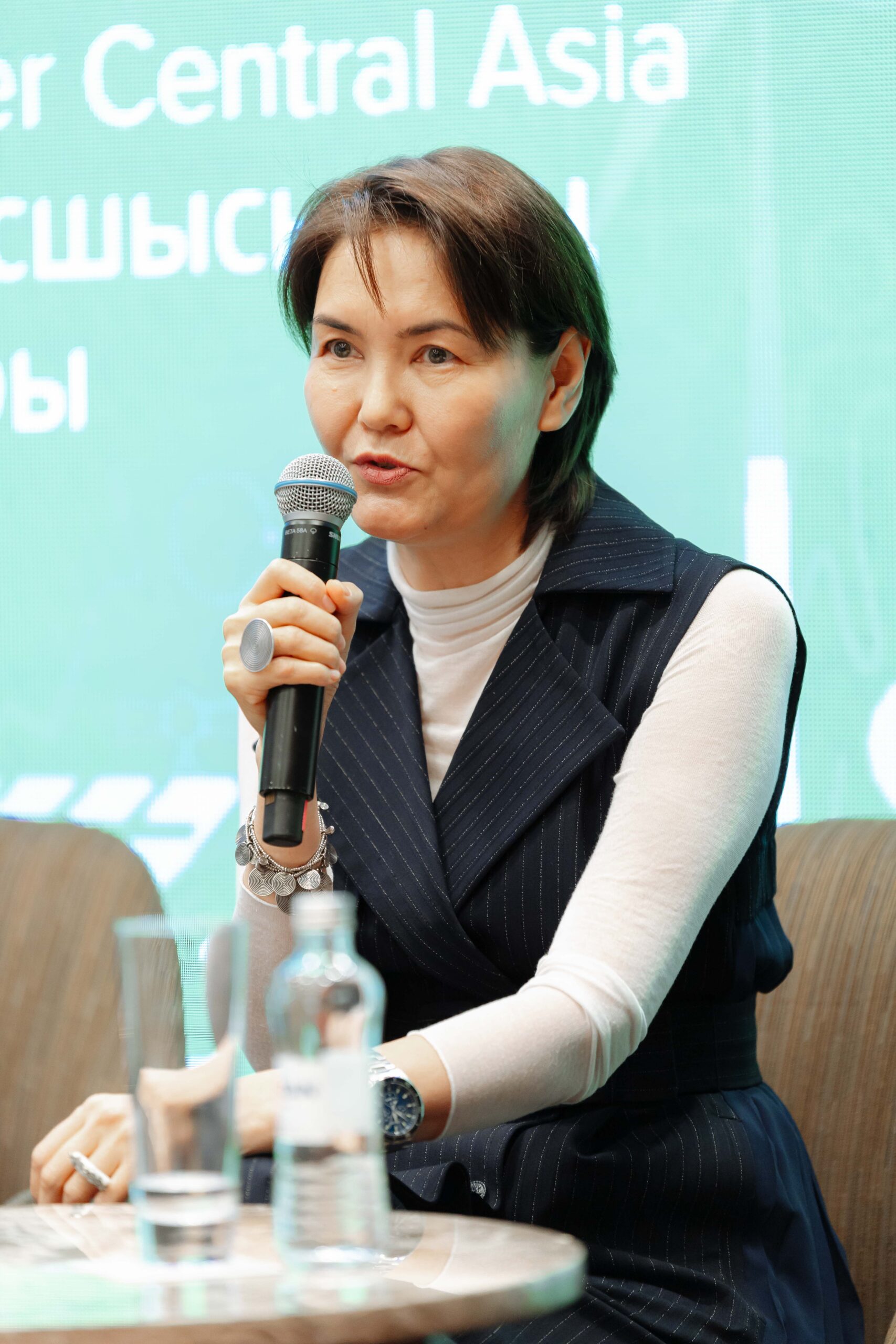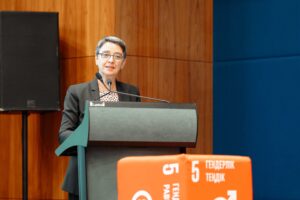ASTANA – The United Nations Development Programme (UNDP) and the Qazaq Green Association established the Women for Just Transition Network on Oct. 17 during the workshop on women’s empowerment in the renewable energy sector in Astana.

Sukhrob Khojimatov. Photo credit: UNDP Kazakhstan/Batyr Aubakirov.
The establishment of the network is the next step in UNDP’s support to promote gender equality in the country.
“In Kazakhstan, our commitment to assisting the nation in fulfilling its gender equality goals remains unwavering. We prioritize initiatives that amplify women’s voices in decision-making, enhance their competitiveness in the labor market, elevate them to leadership roles within the private sector, and fortify efforts to combat gender-based violence,” said UNDP Deputy Resident Representative in Kazakhstan Sukhrob Khojimatov.
According to him, empowering women is not “only a matter of justice” but is a crucial factor driving Kazakhstan’s progress in the Sustainable Development Goals.

Ainur Sospanova. Photo credit: UNDP Kazakhstan/Batyr Aubakirov.
He emphasized the next move is to “create an enabling environment” for the Women for Just Transition network.
The goal of the newly established network is to enable women to amplify their voices in decision-making and foster their political and economic participation.
“Our strategy encompasses advocacy, collaboration with academia, and fostering a conducive environment for women across both private and public sectors. To realize this ambitious vision, the unified commitment of all stakeholders is crucial,” said Ainur Sospanova, chairwoman of the Qazaq Green Association.
According to the UNDP latest report presented during the event, which discusses gender balance in the renewable energy sector and current challenges, women account for 30% of the workforce employed in the renewable energy sector, more than in the coal (22%) and oil and gas industry (18%).
The findings from the report indicate that gender disparities within Kazakhstan’s energy industry remain, including the fact that women predominantly occupy lower-skilled positions. A significant proportion is engaged in unskilled roles, particularly within the electricity sector (53%).

Raquel Lagunas. Photo credit: UNDP Kazakhstan/Batyr Aubakirov.
Fewer women are in leadership roles (16%) or technical positions (19%). As of 2022, women comprised less than 10% of the students majoring in energy in Kazakhstan.
“Unfortunately, it is often the case that the energy sector is perceived as a male sector. But I am sure women can contribute to the development of this sector and, in general, many other industries in Kazakhstan,” said Advisor to the President of Kazakhstan Zulfiya Suleimenova, who also serves as Special Representative for International Environmental Cooperation.
The report notes Kazakhstan leads in Central Asia in terms of the pace of introducing gender-inclusive solutions in the energy sector. While the country undertakes reforms to promote women in state institutions and national companies, it is still “only at the beginning of its journey toward achieving gender equality,” the report shows.
“Women in Kazakhstan’s society are breaking the glass ceiling in the traditionally male-dominated energy industry, but not as quickly as the new challenges require. This situation leads to the depletion of resources needed for the development of gender equality, resulting in a gender gap of 29 % in Kazakhstan,” reads the report.
Experts hope the new Concept of Family and Gender Policy can contribute to ensuring gender-oriented state participation in all areas, including the energy sector.
“Gender equality and the empowerment of women is also not just a goal itself, is also a pre-condition, and it’s part of the solution to the world’s most significant challenges. When women are empowered and participate in all aspects of life, we unlock a powerful force of change,” said Raquel Lagunas, UNDP Global Director of Gender Equality.
UNDP’s Gender Equality Strategy for 2022-2025 prioritizes supporting a “gender-responsive green transition that reduces inequalities through climate action plans, climate finance and natural resource management while enhancing women’s resilience and adaptation to climate change.”
Globally, the share of women in the solar energy industry stands at 40% and in the wind energy industry at 21%.
Khojimatov cited the World Energy Transitions Outlook 2022 report published by the International Renewable Energy Agency, which indicates that by 2030, there will be 139 million jobs in the energy sector worldwide.
“Of those jobs, 38.2 million will be in renewable energy and 74.2 million in other energy transition-related sectors. This offers a chance to reskill and upskill a varied and balanced transition workforce. Leveraging women’s participation as change agents can encourage, influence, and speed up the energy transformation,” he said.
On a global scale, the renewable energy sector witnessed substantial growth in employment, from eight million people working in the industry in 2016 to 11.5 million by 2019.
Projections indicate that by 2050, renewable energy is poised to generate a staggering 24.3 million jobs across 139 countries. In contrast, fossil fuels, biofuels, and nuclear-related industries are expected to experience a loss of 27.7 million jobs.

